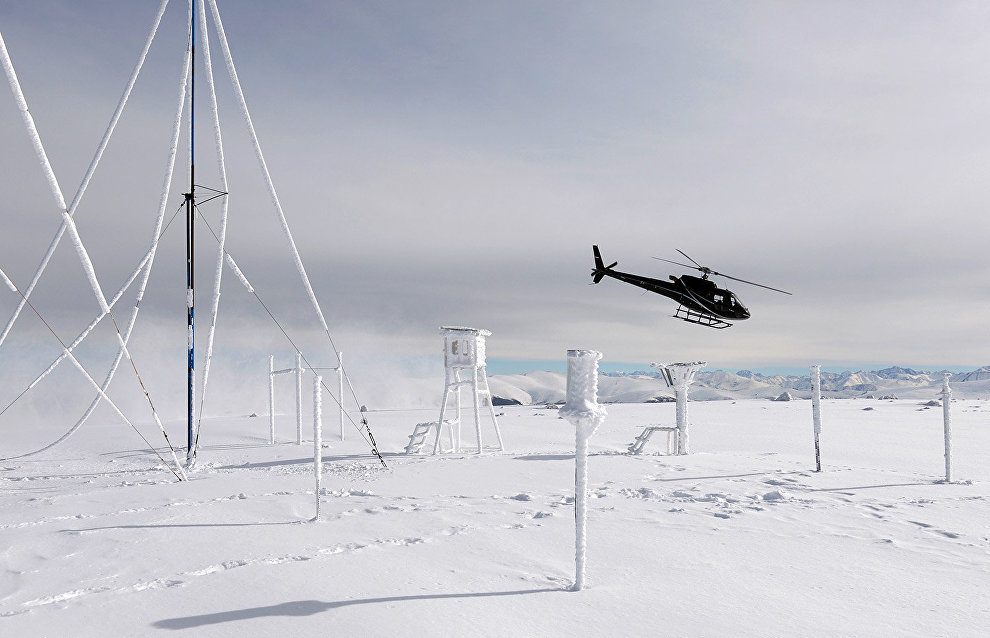Arctic weather station to be built in Tomsk
Experts from the Tomsk-based Institute of Monitoring of Climatic and Ecological Systems, in cooperation with Sibanalitpribor, are developing the concept of a permanent meteorological complex that would replace standard weather stations and operate as an automatic weather station.
"Currently there are very few automatic weather stations in the Arctic. There are ordinary ones, and some semi-automatic ones, whose batteries require regular maintenance. Imported automatic stations are expensive. In addition, the Arctic is viewed as strategic territory, which means that some classes of foreign devices cannot be used. This is the reason why we are developing an automatic meteorological complex based on highly reliable Russian measuring devices," Vladimir Korolkov, Deputy Director at the Institute of Monitoring of Climatic and Ecological Systems, said.
The Institute of Monitoring of Climatic and Ecological Systems is working with Sibanalitpribor on fundamental and applied research, while the company is in charge of design and engineering, manufacturing and implementation. Automatic meteorological complexes, devices and air sensors designed in Tomsk are used at Baikonur and Vostochny space launch centers, industrial sites and for military needs. However, all the solutions created until now were mobile units, while the Arctic needs permanent stations with special specifications, Vladimir Korolkov pointed out.
"The station must be 100 percent automatic, even though measuring devices use various methods, and bringing them together in a single complex is not always easy. In addition, weather stations will have to work in the Arctic environment, where it gets as cold as minus 70 degrees. They will have to withstand strong winds and the Polar night, when photovoltaic batteries cannot be used. Another problem is related to transmitting data from remote territories lacking reliable communication channels," Vladimir Korolkov went on to say.
He believes that the Arctic station will be able to automatically measure about a dozen meteorological parameters (wind speed, air temperature, humidity, atmospheric pressure, precipitation, solar radiation, etc.). Engineers use optical and acoustic methods when designing measuring devices in order to reduce energy consumption. As a result, the station can be powered for as long as one year by a small autonomous power unit. Satellite communications will be used to transfer data. Experts from the Tomsk Polytechnic University and leading Tomsk companies (Micran, Elesy) will be invited to contribute to the development of specific solutions.
The project is financed by a RUB 105 million grant awarded to the Tomsk partners from the Federal Targeted Program, and another 45 million were invested by the Institute of Monitoring of Climatic and Ecological Systems. Sibanalitpribor also invested in the venture. Under the terms of the grant, the station must be designed, assembled and tested under Arctic-like conditions by 2020.
